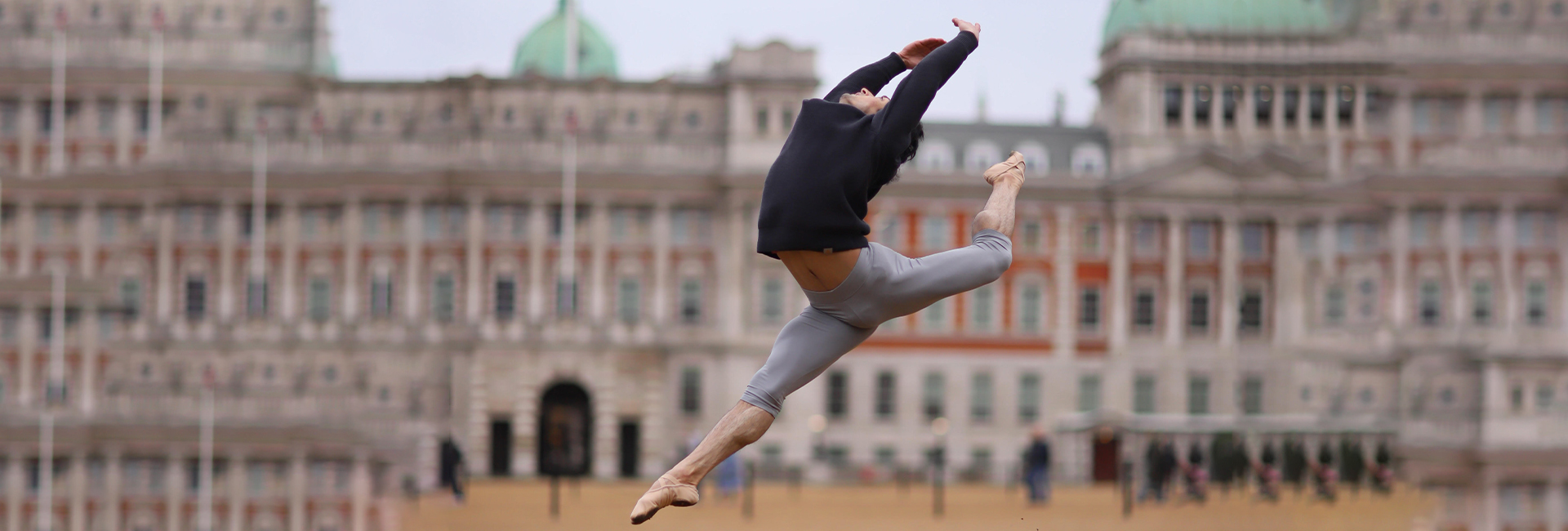(June 14, 2024) Last month in London, a rather unusual scene unfolded at the Buckingham Palace. An 18-year-old Indian girl Arti, who hails from a village in Uttar Pradesh, made a spectacular entry into the gates of the palace in a pink e-rickshaw – something she drives back home in Bahraich. This wasn’t a just publicity stunt. It was a choice that was not just a sustainable mode of transport but also a symbol of an idea and a movement. Clad in a yellow chikankari kurta, she made her way inside the palace to meet King Charles III after receiving the Amal Clooney Women’s Empowerment Award, named after the world-renowned human rights barrister.
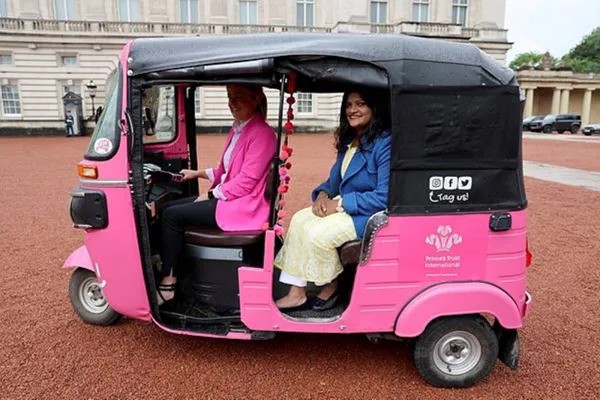
Arti at The Buckingham Palace
She received the honour for inspiring young girls through her work with the government’s Pink Rickshaw initiative, which offers safe transport for women and aims to drive social change. “I take pride in being able to inspire other girls who face similar challenges. The newfound independence allowed me to see the world in a different light. Now, I am able to fulfill not only my dreams but also those of my daughter,” said Arti, who is a participant in the Aga Khan Foundation’s (AKF) Project Lehar.
In late May this year, she made her maiden visit to London to receive the award at The Prince’s Trust Awards in London. Founded by His Majesty King Charles III, The King’s Trust International (formerly Prince’s Trust International) empowers young people in 20 countries through employment, education, and enterprise programs.
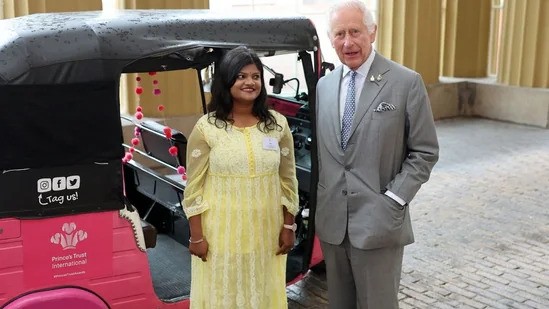

Arti with King Charles III
“It has been an unbelievably amazing experience, meeting the King who was so nice and sent his namaste to my family back home too. He also listened carefully as I spoke about how much I love driving my e-rickshaw, which does not run on polluting diesel or petrol but the one that I charge at home every night, she added. Her journey epitomises bravery, perseverance, and an unyielding resolve to triumph despite all odds.
Fighting against the odds
Born into a family of daily wage labourers struggling to make ends meet, Arti was married off by age 13 and forced to leave school. The marriage quickly dissolved, leading her to return home with her infant daughter. Facing limited earning opportunities as a single mother in her village, Arti started engaging in domestic tasks at home. Her outlook changed when she discovered Project Lehar – a collaboration between AKF and The King’s Trust International – which inspired her to envision a brighter future for herself and her daughter. Fueled by determination, she set out to turn that vision into reality.
Project Lehar provides vocational training, entrepreneurship opportunities, and life skills courses tailored for girls and young women from economically disadvantaged backgrounds in Uttar Pradesh and neighbouring Bihar. Additionally, it offers support for girls who have discontinued their education to help them complete their studies.
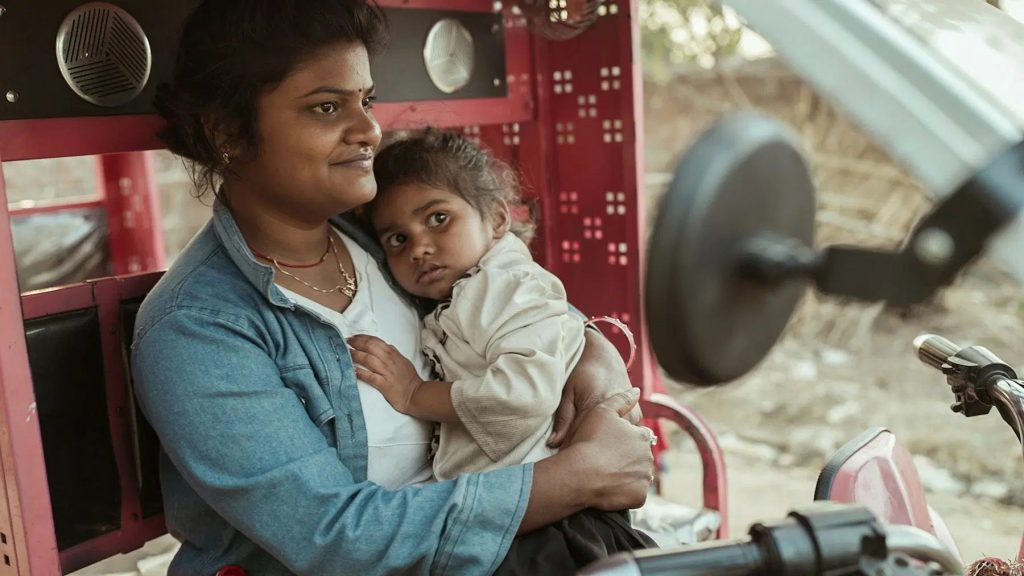

Arti with her daughter
For Arti, Project Lehar provided the insight and confidence to consider self-employment as a viable option. “The programme helped me develop my skills, especially those that impact my life, such as problem-solving ability, communication skills, managing stress and emotions, and understanding entrepreneurship,” she said, adding, “Through the learning I had over that period, I became capable of making important decisions for my life.”
Changing the course of her life
It was in the July of 2023 that Project Lehar introduced Arti to the Indian government’s pink e-rickshaw scheme, which serves a dual purpose: to enhance employment opportunities for marginalised women, particularly widows and single mothers like Arti, and to improve women’s access to safe transportation, thereby enhancing their mobility and independence.
In Arti’s community, driving has long been seen as a job for men. Girls and women have fewer chances and less freedom compared to boys and men. She was one of the first women in her area to join as a trainee driver. After passing her driving test, she began driving regularly. Now, she spends six hours a day behind the wheel, earning ₹15,000 per month (about $180) to support herself and her daughter. “I know my daughter will be proud of me one day,” said Arti.
Getting recognition in the UK
During her recent visit to London, she enjoyed every moment and celebrated her win, and even bought some cake and a pair of shoes for her daughter.
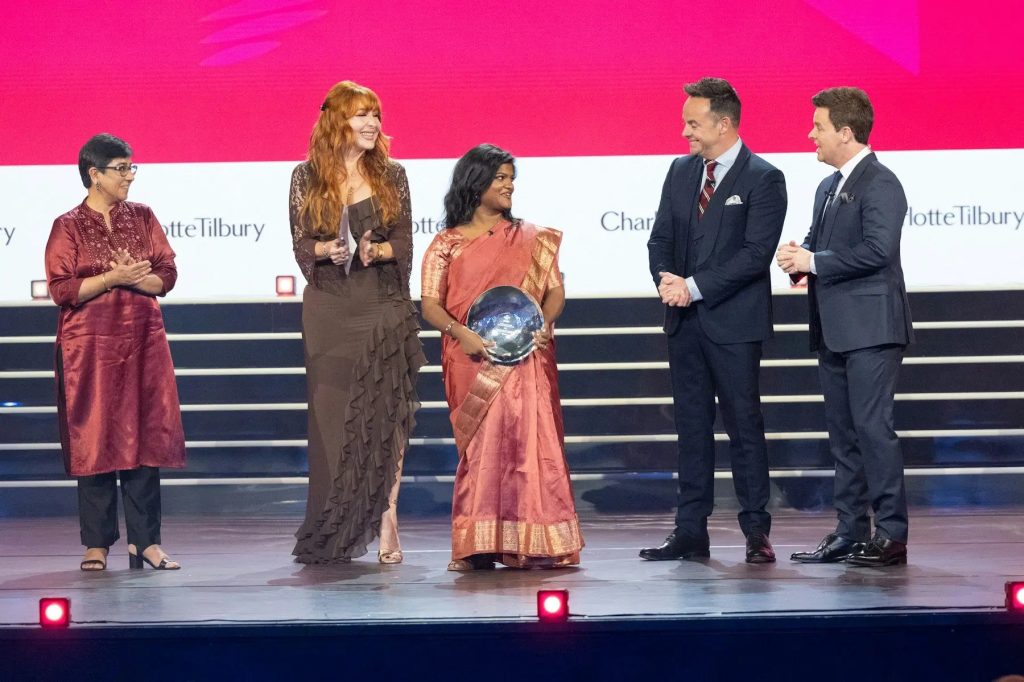

Arti receives the award in London
Seeing her journey, Amal Clooney, the British activist-barrister after whom the award is named said, “This year’s winner, Arti, is an inspirational example of someone whose trailblazing work in a typically male arena makes women in her community safer. Arti is determined to create a world where her daughter will not face the obstacles that she has faced, and she is already making a difference through her example.”
Arti’s journey as an e-rickshaw driver in her village in Uttar Pradesh is not just about earning a livelihood but proof of her resilience, courage, and breaking gender barriers. Her determination to make the streets safer for women by offering reliable and secure transportation is an inspiration to many. Her story reminds us that change begins with individuals like her, who refuse to be bound by societal norms and instead, forge their own path, creating a brighter and safer future for generations to come.


